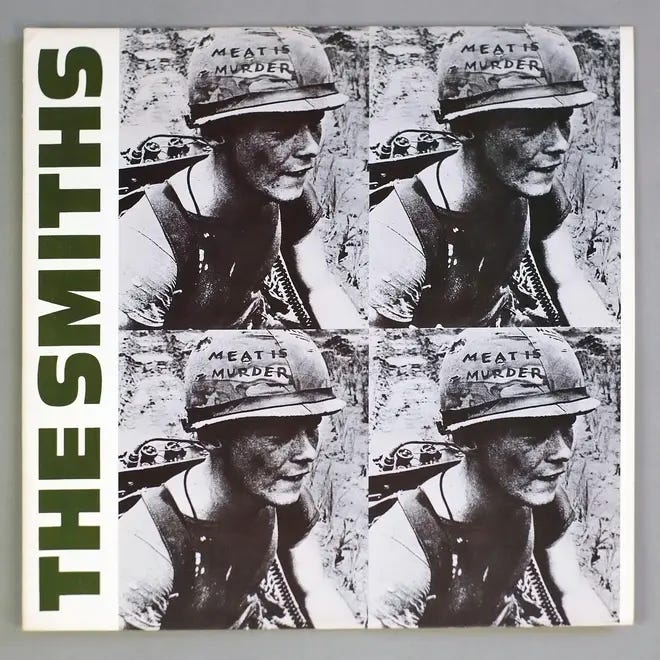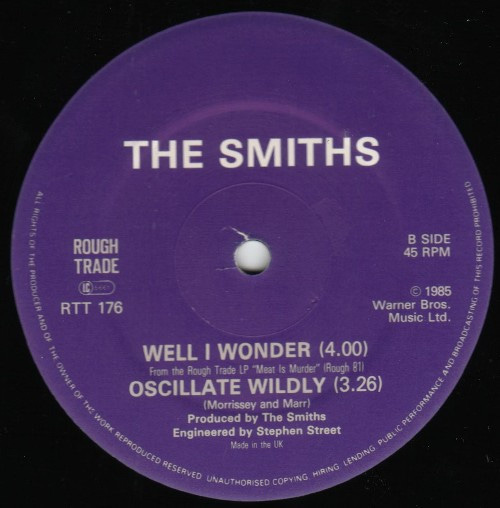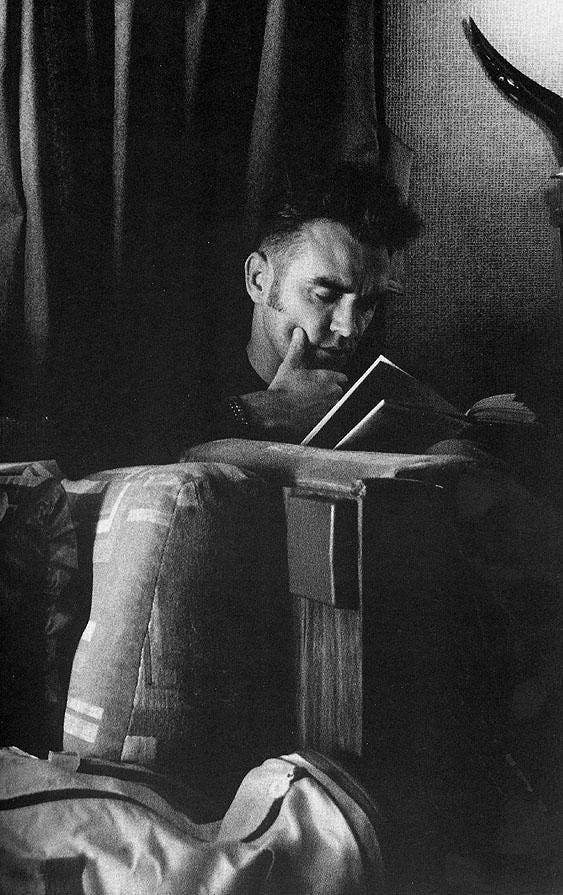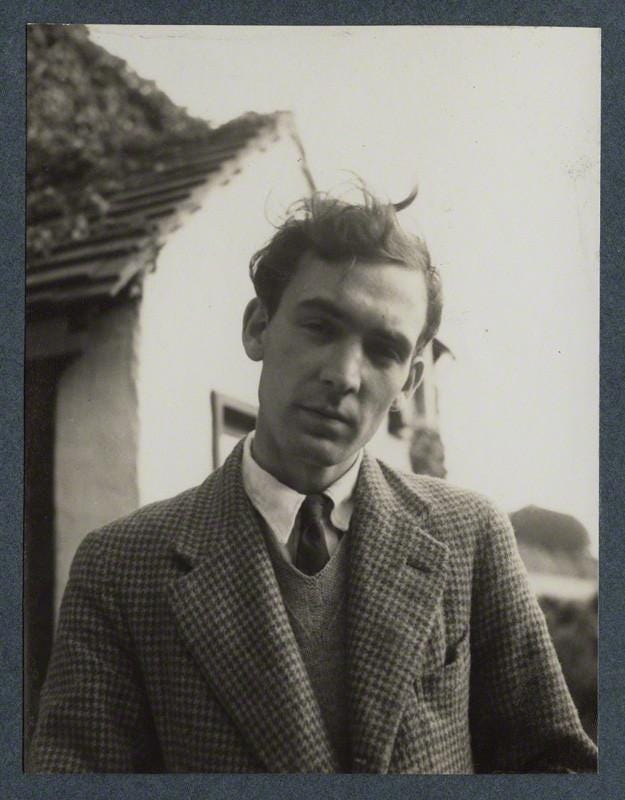The 8th track on the Smiths’ Meat Is Murder studio album, 'Well I Wonder' is an understated song, smoldering with emotive energy that conveys an almost palpable sense of yearning and desire.
Musically, the song draws one in with Johnny’s steady strumming and Andy’s gentle, restrained bass lulling the listener to the edge of euphoric somnolence. This ‘mood’ is complemented by Morrissey’s soft, almost fragile, delivery of lyrics that reveal the devastation of unrequited love:
Well I wonder
do you hear me when you sleep?
I hoarsely cry
Well I wonder
Do you see me when we pass?
I half die
Please keep me in mind
please keep me in mind
Gasping - but somehow still alive
this is the fierce last stand of all I am
Gasping - dying - but somehow still alive
this is the final stand of all I am
Please keep me in mind
‘Well I Wonder’ was also the B-side of the Smiths’ 'How Soon Is Now' single in several (but not all) regions upon its release in early 1985.
To those familiar with her work, the lyrics of 'Well I Wonder' are clearly influenced by passages from Elizabeth Smart’s1 1945 novel By Grand Central Station I Sat Down And Wept, which itself was inspired by her affair with the English poet George Barker2.
Some notable passages Morrissey borrowed from Smart’s book:
"They obey the glint in the middle of my glazed eye, for it is the fierce last stand of all I have."
"Threateners of life are horrible enough, and she whom I have injured, and whose agony it is my penalty to watch, lies gasping, but still living, on the land."
"My dear, my darling, do you hear me where you sleep?"
Morrissey has repeatedly talked through the years of his love for the works of Elizabeth Smart.
References to By Grand Station Central I Sat Down And Wept are found in a number of Smiths songs, in particular ‘What She Said’, ‘Reel Around The Fountain’ and, as referenced above, ‘Well, I Wonder’. By Grand Station Central I Sat Down And Wept also inspired the title of the Smiths’ compilation album, Louder Than Bombs.
Johnny said that he wrote the music for the song at the end of the summer of 1984, but elements within it can be traced back to a home demo from late 1983 as well as an instrumental demo recorded at Jam Studios in London in July 1984, with producer John Porter, alongside material that would soon after be released on the ‘William, It Was Really Nothing’ single.
The song was mainly recorded in October 1984 at Amazon Studios in Liverpool, with the Smiths (mostly Johnny) acting as producer and Stephen Street as recording engineer. Overdubs were added the following month at Ridge Farm Studios in Surrey. The song's final mixing was done in December 1984 at Island Record's Fallout Shelter3.
"The genesis of “Well I Wonder” dates to a home demo Marr cut in late 1983, which was then reattempted while still an instrumental during the London sessions with Porter at Jam Studios the following July. It became the flip side to the Rough Trade pressing of the ‘How Soon Is Now?’ single, with Marr praising the song to Record Collector in November 1992 by saying, “It’s one of those things that a modern group could try and emulate but never get the spirit of. It’s so simple.” Johnny began finalizing the instrumental upon moving back to Manchester in the autumn of 1984. The move home was intentional, in order for him to get the proper atmosphere for the tracks. The Smiths anticipated that the song would be popular with their fans, because, as Marr told Uncut in 2008, “It had that real sense of yearning.”
-John D. Luerssen4
"'Well I Wonder' I really like as well. It's one of those things that a modern group could try and emulate but never get the spirit of. It's so simple."
- Johnny Marr5
Listen to ‘Well I Wonder’ here:
'Well I Wonder' was never played live by the Smiths or Morrissey, although the latter did do a partial a cappella snippet during the musical pause in the song 'Speedway' at a concert at the Robert Mondavi Center at UC Davis (California) on March 4, 2013. Listen beginning at 2:23 in the attached video of Morrissey's performance of 'Speedway':
Elizabeth Smart (1913 – 1986) was born to a prominent family in Ontario, Canada. Smart grew up among the social elite of Ottawa through her father's connections as a lawyer. Her mother often hosted parties for prominent politicians and civil servants. As a result, Smart socialized with many members of Ottawa's political class who were or would become important figures in Canadian history.
At the age of 18, following graduation from secondary school, Smart traveled to England to study music at the University of London. In 1937, Smart took a job as secretary to the noted Mrs. Alfred Watt, head of the Associated Country Women of the World, an international organization for rural women, travelling extensively throughout the world accompanying Watt to various conferences.
In 1937 Smart happened across a book of poetry by George Barker, immediately falling in love not only with the poetry, but with the man himself. At social gatherings with writers, editors and publishers (by way of her involvement with Watt) Smart would often ask about Barker, saying she wanted to meet and marry him. Soon Smart began a correspondence with the poet.
Eager to launch her writing career, Smart left Ottawa and began traveling on her own. She eventually joined a writers' colony at Big Sur in California, and while there she made contact with Barker through a third-party. Smart payed to fly Barker and his wife to the United States from Japan where he was teaching. Soon after meeting, they began a tumultuous affair.
Their affair produced four children (Georgina, born 1941; Christopher, born 1943; Sebastian, born 1945; and Rose Emma, born 1947). Through it all Barker, who was Catholic, said he would leave his wife for Smart, but this never happened (he was to have fifteen children by several different women). They lived a bohemian lifestyle and associated with artists.
Barker was a heavy drinker and Smart took up the habit, which intensified when the two were together. The couple were involved in numerous fights; during one argument, Smart bit off part of Barker's upper lip. Nonetheless, as evidenced from writings in her journals, Smart's love for Barker continued for the remainder of her life.
In 1986 Smart died in London of a heart attack. She is buried in St George's churchyard, St Cross South Elmham in Suffolk. England.
Stephane, PassionsJustLikeMine.com
The Smiths FAQ
Record Collector, November/December 1992










